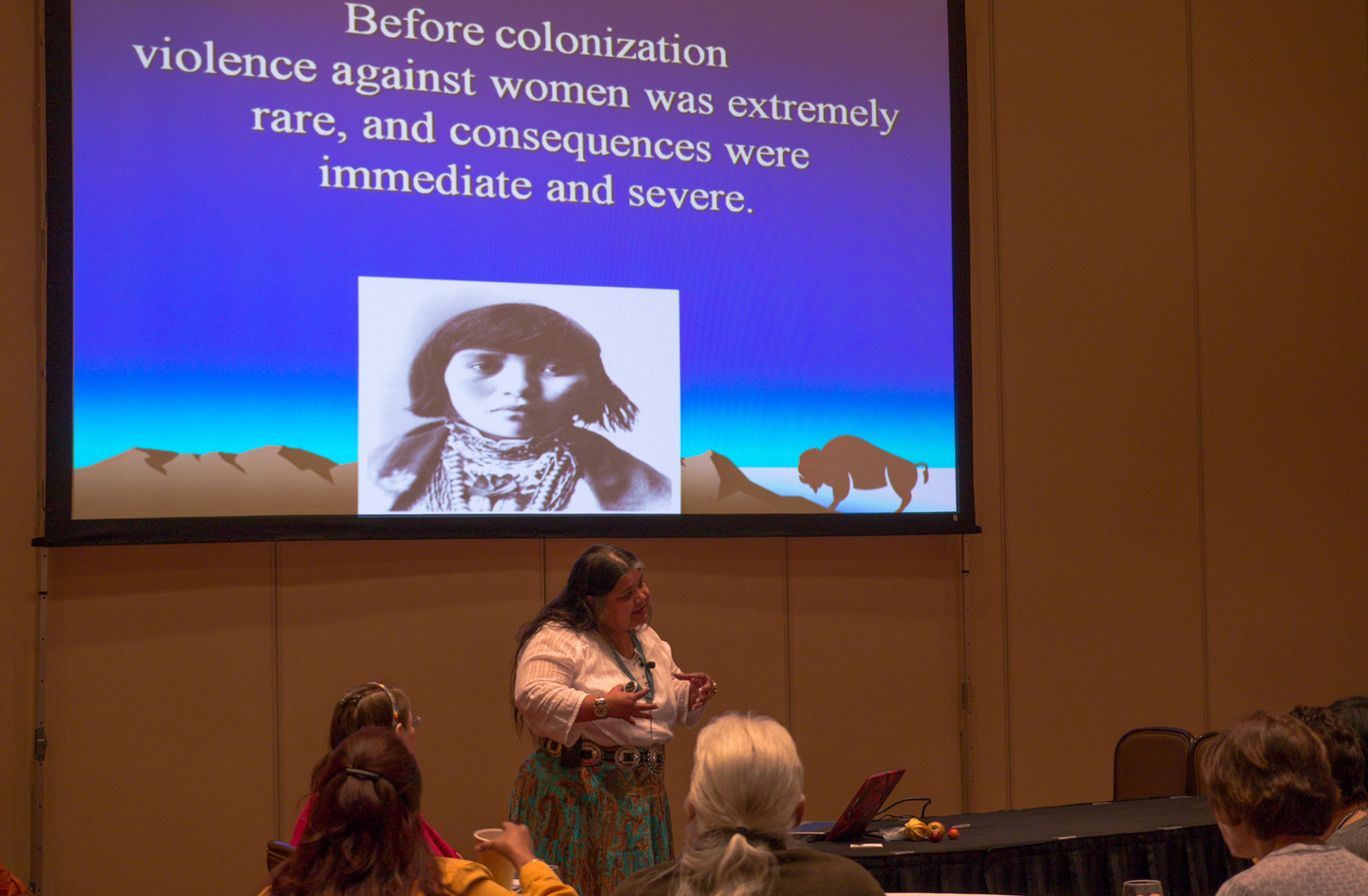Elena Giacci, an anti-sexual and domestic violence specialist, visited the Sky Ute Casino Resort’s Events Center Wednesday, Sept. 25 to discuss American Indian culture.
Part Diné and Oglala Lakota, Giacci touched base on different native elements including the effects of residential boarding schools, speaking her native language, growing up as a native, and the results of historical trauma.
Giacci said the effect of residential boarding schools on Native students lingers to today.
“When we look back at some of the history of boarding schools, we can point at a significant factor that says this had a huge effect on our people,” she said.
The crowd sat quietly and listened to her words.
“I want to acknowledge that a) not every residential boarding school is bad, and b) not everybody’s experience was bad,” she said. “But what we do know is that a majority of people did not have the best experience in these schools.”
She explained how the results of historical trauma from boarding schools affected American Indian culture.
“We have relatives who had that experience,” Giacci said. “I’ve been in many communities where I’ve been told by different people this didn’t happen to them there, and I felt so grateful.”
Her descriptions of historical trauma went even further.
“When we look at the effects of historical trauma, we’re looking at lifetime prevalence of having major depression,” she said. “It’s so personal and can be transmitted over generations. We know that as we start this road talking about historical trauma, how much a difference it makes [when] your community will start peeling away those layers.”
Giacci then described the effects of the Indian Child Welfare Act of 1978, giving her own personal experience.
“We would see that adoptions were occurring where mothers were told their children were stillborn and then adopted illegally or legally,” she said. “That’s my story. My natural mother was told that I was stillborn and I was then adopted out into an Italian family.”
She said family stories are critical to one’s understanding of oneself.
“I’m very fortunate these elders, grandpas, grandmas, and all my dear relatives give me these stories to give back to you,” she said. “Think of those things that pass through your heart and spirit. The things that our relatives give us are these stories.”
Giacci said she was impressed by her interactions with Southern Ute community members.
“I was with members of the [Southern Ute Indian Tribal Council], tribal chair, and members of this community who said we want to know more. What an amazing thing about a community,” she said.
Giacci said the best medicine for historical trauma is kindness.
“Kindness has always worked,” she said. “I work on trying to beat these kinds of [bad] feelings inside of me. Studies have shown how deeply it affects us. And to deny it when you work in [a] community of color, all it’s going to do is separate you. We do that and tend to diminish the importance of what matters.”

